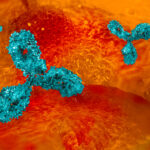As obesity pioneer Novo Nordisk loses ground in the race for next-generation drugs, the Danish pharma giant is betting on novel RNA technology to bolster its early-stage pipeline.
Novo has inked a multiyear research collaboration with Replicate Bioscience potentially worth $550 million, giving the Big Pharma access to Replicate’s platform to go after cardiometabolic disease targets.
Under the terms of the deal, Novo will fund Replicate’s research in return for the exclusive, global right to develop and commercialize resulting lead programs, Replicate announced in an Aug. 28 release.
Specific disease targets were not disclosed, but the collaborators plan to pursue new treatments for obesity, Type 2 diabetes and other cardiometabolic conditions.
Replicate will be paid an upfront tranche and potentially in milestones for a total deal value of $550 million, according to the release. The biotech can also receive royalties on product sales that come from the partnership.
Replicate crafts self-replicating RNA (srRNA) molecules, which can be given in lower doses than typical mRNA molecules because they’re designed to copy themselves and grow in number once they enter the body. Once inside a cell, the cell’s natural machinery uses the RNA as a guide to create a drug.
The San Diego-based biotech’s srRNA rabies vaccine recently cleared a phase 1 test, and a COVID-19 vaccine using similar technology—Arcturus Therapeutics and CSL’s Kostaive—has been approved in Europe and Japan.
The rabies vaccine is Replicate’s sole clinical asset, with other preclinical candidates including a vaccine for Epstein-Barr virus and compounds targeting breast cancer, lung cancer and autoimmune disease.
“Replicate works with industry leaders to create fit-for-purpose srRNA that enables patients’ cells to naturally generate their own therapeutic proteins,” Rachael Lester, Replicate’s chief business officer, said in the release. “This partnership combines the strength of Replicate’s proprietary srRNA vector library with Novo Nordisk’s therapeutic and clinical insights to create powerful new opportunities.”
Related
Once the undisputed heavyweight of the GLP-1 world, Novo has since struggled with the ascendance of chief rival Eli Lilly and competition from compounders. The company’s longtime CEO Lars Fruergaard Jørgensen was ousted this year due to “recent market pressures,” with Novo veteran Maziar Mike Doustdar stepping up to replace him not long after the company lowered its 2025 sales outlook due to slow growth in the semaglutide market.
Earlier this month, Novo dropped two obesity assets, a GLP-1/GIP co-agonist and a CB1 receptor blocker, from its pipeline.
“Novo Nordisk is continuously looking to build on its leading position in cardiometabolic diseases,” Karina Thorn, Ph.D., Novo’s vice president of nucleic acid research, said in the release. “We seek to combine our core capabilities with selected modality platforms to raise the innovation bar to the benefit of people living with serious chronic diseases.”
Since Doustdar took the wheel, Novo has said goodbye to its senior vice president of marketing and patient solutions for U.S. operations and scored FDA approval for Wegovy in adult metabolic dysfunction-associated steatohepatitis. The Big Pharma is currently in a hiring freeze for “non-business critical areas.”


